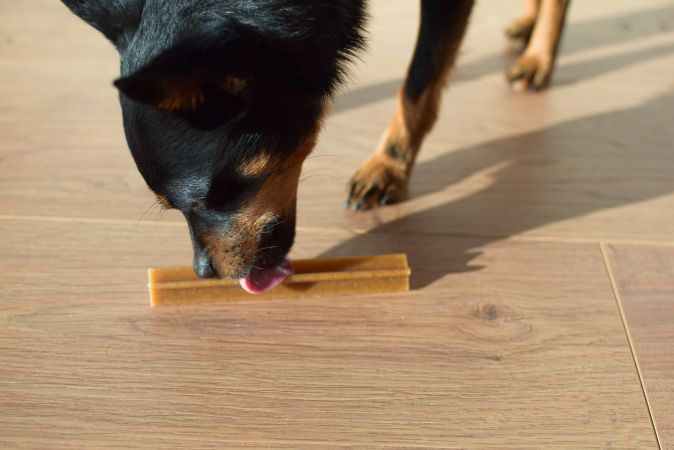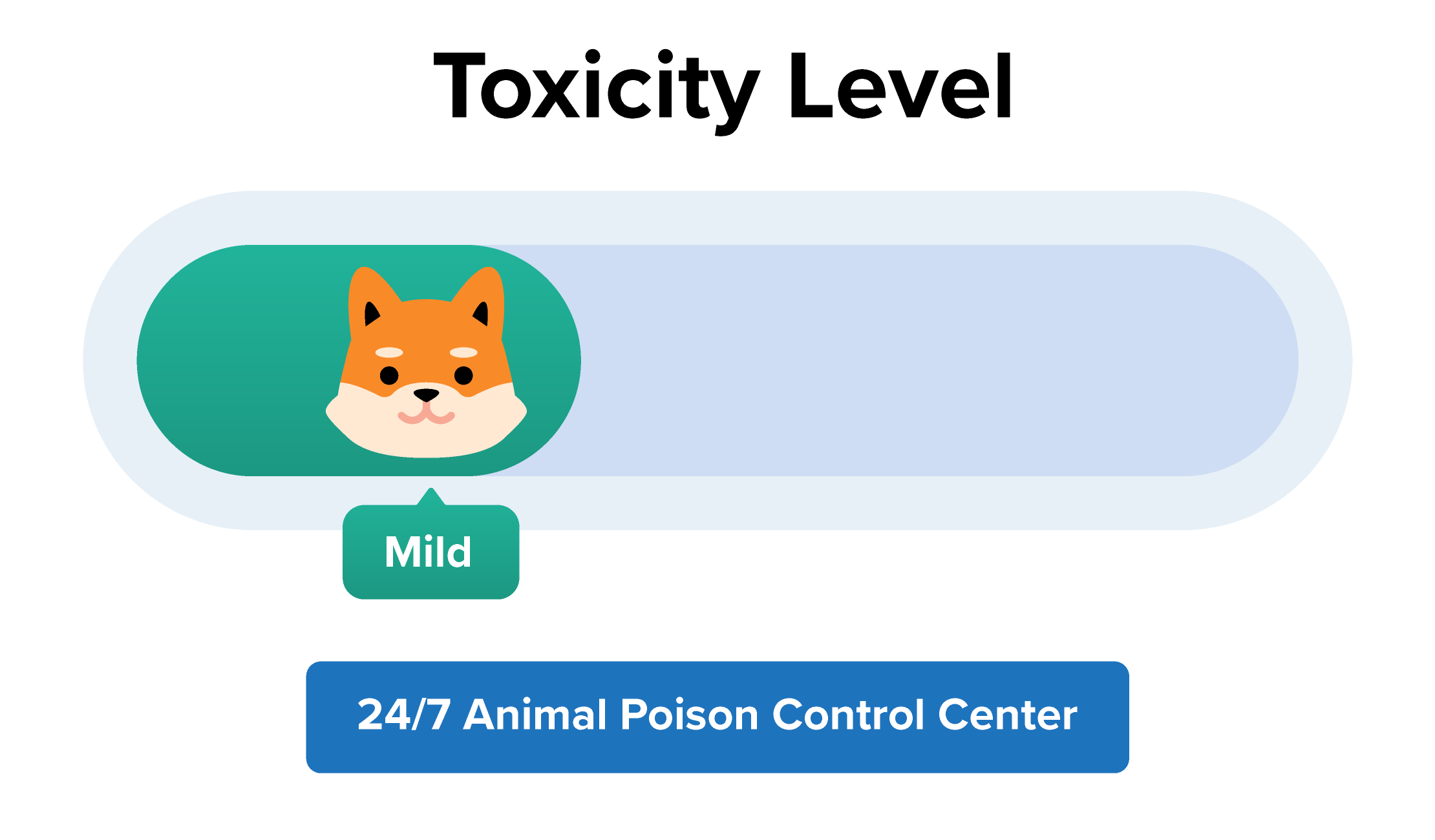Has your dog eaten too many Dentastix? Are you worried the Dentastix may make your dog sick? If so, then you’ve come to the right place!
Connect with a verified veterinarian in minutes. Licensed vets are available 24/7 to answer your questions. No need to worry about your furry family member.
In this article, we’ll take a quick look at Dentastix and whether or not they can make your dog sick. Let’s get started!

What are Dentastix?
Dentastix are a brand of dental chews for dogs. They’re given to dogs to help keep teeth and gums healthy while also taking care of doggie bad breath.
The stix are made in an x-shape, which makes it easy for dogs to hold and chew. The shape has also been proven to reduce plaque and tartar buildup on teeth.
How Many Dentastix Can A Dog Have Each Day?
The recommendation on the packaging says a dog should only have one Dentastix a day. It’s important to know that while these treats are low in fat, they are high in calories. If your dog eats too many of these each day, he could become overweight or obese.

Review symptoms, medications & behavior to keep your pets healthy with a Vet Online in just minutes.
Ask a Vet Live NowWhat Happens if a Dog Eats Too Many Dentastix?
The ingredients in Dentastix are not toxic to dogs, as they are a pet-safe treat.. However, if your dog eats too many Dentastix, he will probably have a good case of nausea, diarrhea, and vomiting. Overindulging in any treats could cause tummy troubles.
Very rarely, eating an excessive amount of Dentastix could cause bloating or even an intestinal blockage. This is a very serious, painful condition that can lead to death if untreated.
What Ingredients are in Dentastix?
Dentastix contain the following ingredients:
- Rice flour
- Wheat starch
- Glycerin
- Gelatin
- Gum arabic
- Calcium carbonate
- Natural poultry flavor
- Powdered cellulose
- Sodium tripolyphosphate
- Salt
- Potassium Sorbate
- Smoke flavor
- Zinc sulfate
- Green tea extract
- Turmeric
- Iron oxide
- Copper sulfate
These ingredients are not toxic to dogs, though they could cause an upset stomach and diarrhea if a dog ate too many. Some dogs may also vomit and not want to eat their food.
If your fur baby has eaten too many Dentastix, avoid inducing vomiting. Doing so may cause damage to your dog’s digestive system or esophagus. It could also cause him to choke. So, only induce vomiting if the vet recommends taking this step.
The vet may determine that your dog doesn’t require a visit to their clinic; however, they may recommend monitoring your dog’s condition. If your fur baby shows any concerning signs, the vet will want you to call immediately.
If your fur baby seems otherwise OK, but has some stomach upset, the vet may advise feeding him a bland diet for a few days. They may recommend feeding your dog canned pumpkin (not the kind used for pumpkin pie), low-fat Greek yogurt, or other foods rich in fiber that are easily digested.
The vet will recommend the length of time your fur baby must stay on this diet.
Can My Dog Choke on Dentastix?
Yes, if your dog eats one or more Dentastix he could choke. The dental sticks are large enough to become lodged in your dog’s esophagus, causing him to choke.
Symptoms of an Intestinal Blockage in Dogs
You may notice these symptoms if your dog has eaten too many Dentastix and has developed an intestinal blockage:
- Diarrhea
- Vomiting
- Lethargy
- Abdominal pain & swelling
- Constipation
- Loss of appetite
- Excessive salivation
If your dog has developed any of these symptoms, then it’s time to call the vet now. This is a medical emergency that could be life-threatening.
Treatment of Intestinal Blockage in Dogs
At the vet’s, they will perform a complete physical exam on your dog. This may also include lab work and x-rays. The x-rays are done to help the vet see where the blockage is located in the dog’s intestines.
If the vet diagnoses your dog with a blockage, then your dog may need to have emergency surgery. The surgery is necessary to safely remove the blockage. Your dog may need to stay in the hospital for a few days after the surgery.
The good news is that most dogs when they receive prompt medical treatment, do go on to make a full recovery.Also, remember that this is an extremely rare complication, most dogs will just feel a bit sorry for themselves if they have overindulged! Always check with your vet if you have any concerns.
Connect with a verified veterinarian in minutes. Licensed vets are available 24/7 to answer your questions. No need to worry about your furry family member.

Rebecca MacMillan, BVetMed BSAVA PGCertSAM MRCVS
This article has been reviewed and approved by an independent Veterinarian: Rebecca is a companion animal vet who has always had a passion for writing and client communication. Since her graduation from the Royal Veterinary college in 2009 she has gained a wealth of experience in first opinion small animal practice, in both clinical and managerial roles. She currently works in the South West and deals with a variety of routine and emergency appointments, but particularly enjoys medicine cases. Outside of work and writing, she enjoys spending time with her family, including her bouncy flat coated retriever George!
Review symptoms, medications & behavior to keep your pets healthy with a Vet Online in just minutes.
Ask a Vet Live Now





